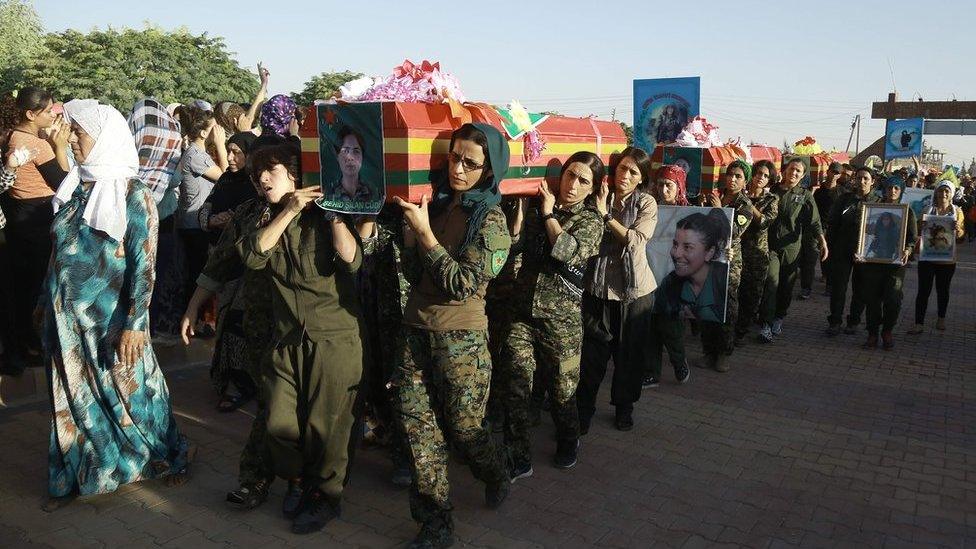Turkey 'must ensure access' to besieged Cizre, says Council of Europe
- Published
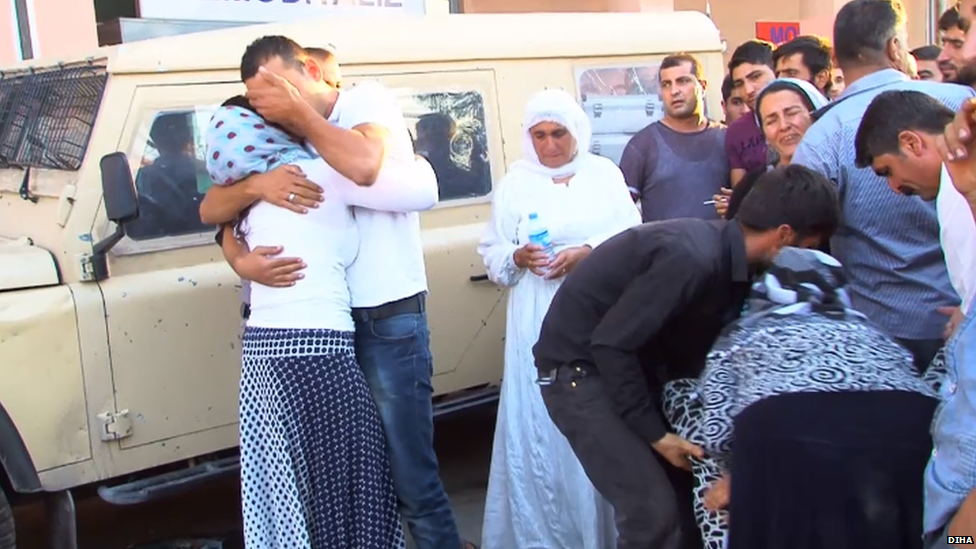
Many people have been killed in Cizre since the military operation began
Turkey should grant independent observers immediate access to the besieged city of Cizre, the Council of Europe has said.
Residents in the mainly Kurdish town say they have been unable to buy food or medical supplies since the military imposed a curfew eight days ago.
Turkey launched a security operation against Kurdish militants in Cizre last Friday, which has killed at least 19.
Nils Muiznieks of the Council of Europe called the developments "distressing".
Turkey's Interior Minister Selami Altinok said seven suspected rebels had been killed in the south-eastern city.
At least 12 civilians are also believed to have died. The exact number is disputed.
The curfew, which has prevented people leaving and entering, is to be lifted on Saturday morning local time, the Turkish authorities said.
'Disproportionate force'
Mr Muiznieks, the Council's human rights commissioner, urged Turkey in a statement, external to allow independent observers to assess the situation in Cizre, which is home to more than 100,000 people.
"I have received reports that public life, including essential services such as healthcare... have been severely disrupted, and that entry and exit from the city have been barred," he said.
"More disturbingly, I have also received serious allegations of disproportionate use of force by security forces against civilians."
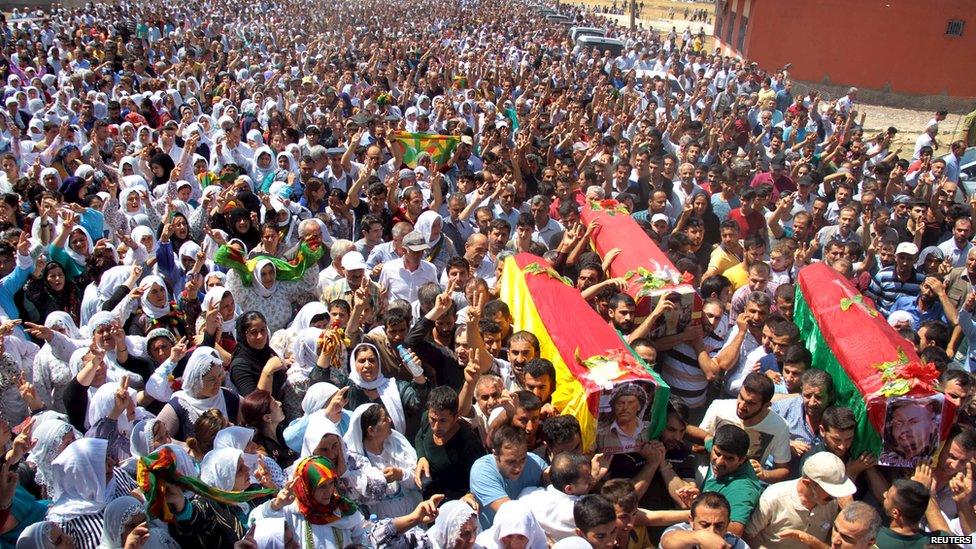
While some funerals have taken place, others have been unable to bury their loved ones
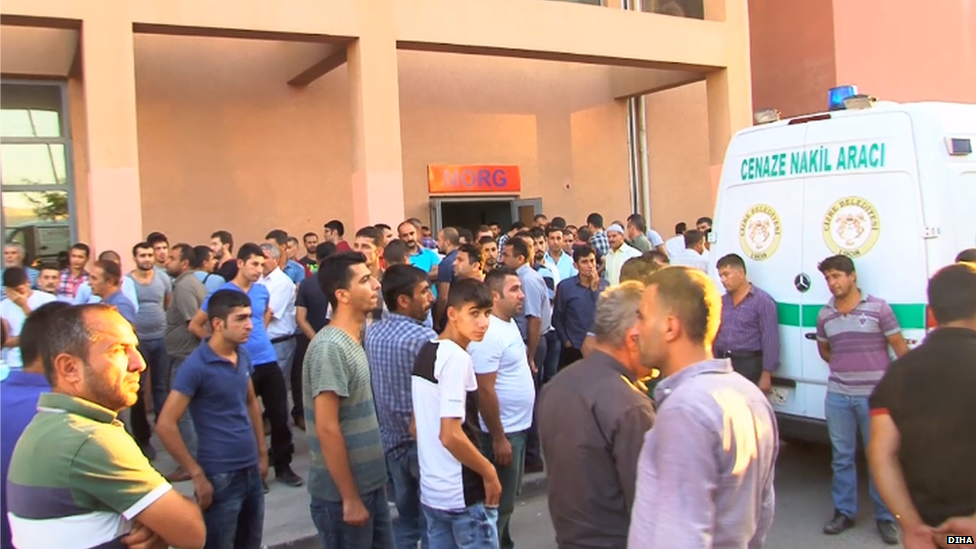
Access to hospitals has been restricted since the curfew was put in place
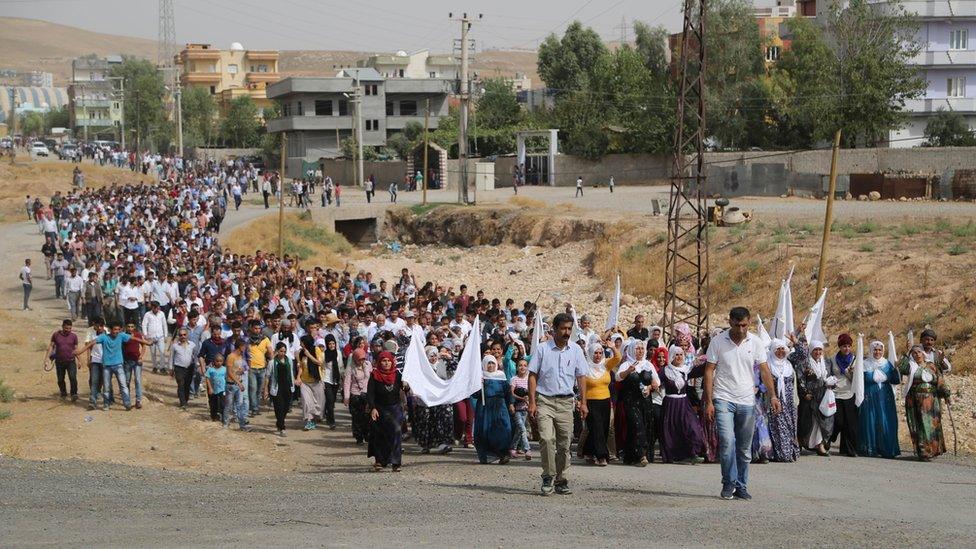
Resident of the Konak neighbourhood of Cizre marched in protest on Wednesday
Deadly clashes between Turkish forces and the militant Kurdish organisation, the PKK, have intensified since a ceasefire collapsed in July.
Turkish jets have bombed PKK bases in northern Iraq, including again on Friday morning, and the army has boosted security and imposed curfews across the south-east.
A Turkish official told the BBC that they believed 80 professional PKK fighters were operating in Cizre and around 200 young people had taken up arms.
The rebels had dug around 60 ditches to prevent armoured vehicles reaching parts of the city, but he said the army had filled around 30 of them.
The official would not confirm the number of civilian casualties.
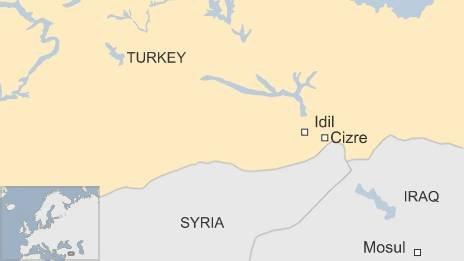
A delegation of members of from the pro-Kurdish Peoples' Democratic Party (HDP) tried to access Cirze on foot on Thursday, but they were stopped by police.
The party's co-leader Selahattin Demirtas said he wanted to highlight the deteriorating humanitarian conditions in the city.
No water or medicine
One doctor, who is responsible for more than 4,000 patients but cannot leave his home, told the BBC the emergency department at the state hospital in Cizre was closed and pharmacies were not opening.
Water supplies were regularly cut off and rubbish was not being collected from the streets, he added, prompting concerns about disease.
The body of a 53-year-old victim of the conflict could not be buried for two days, so ice bottles were used to keep it cold, local reports said.
Meryem Sune, a mother of seven, was reportedly hit by shrapnel and died of her injuries because she was not allowed into hospital for treatment.
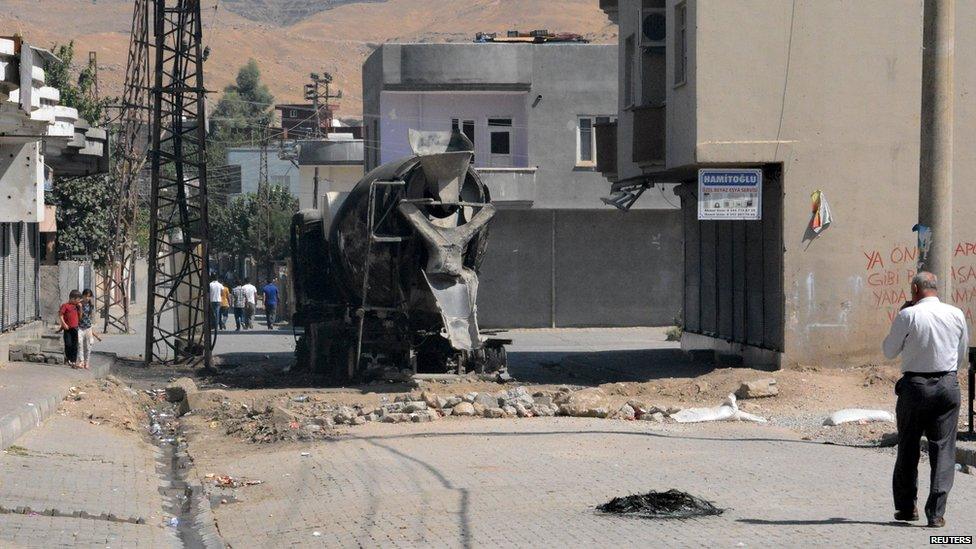
Violence in Cizre, near the Syrian border, has killed several civilians
Also on Friday, an attack on a cafe in the mainly Kurdish city of Diyarbakir left a waiter dead and three policemen injured.
More than 40,000 people have died since the PKK launched an armed campaign in 1984, calling for an independent Kurdish state within Turkey.
The ceasefire that began in 2013 unravelled in July, after a suicide bombing by suspected Islamic State militants near the border with Syria.
The attack led to mutual recriminations between Kurdish groups and Turkey.

Are you in Cizre? What has been your experience of the past few days? You can share your comments by emailing haveyoursay@bbc.co.uk, external.
Please include a contact number if you are willing to speak to a BBC journalist. You can also contact us in the following ways:
WhatsApp: +44 7525 900971
Send pictures/video to yourpics@bbc.co.uk, external
Tweet: @BBC_HaveYourSay, external
Send an SMS or MMS to +44 7624 800 100
- Published10 September 2015
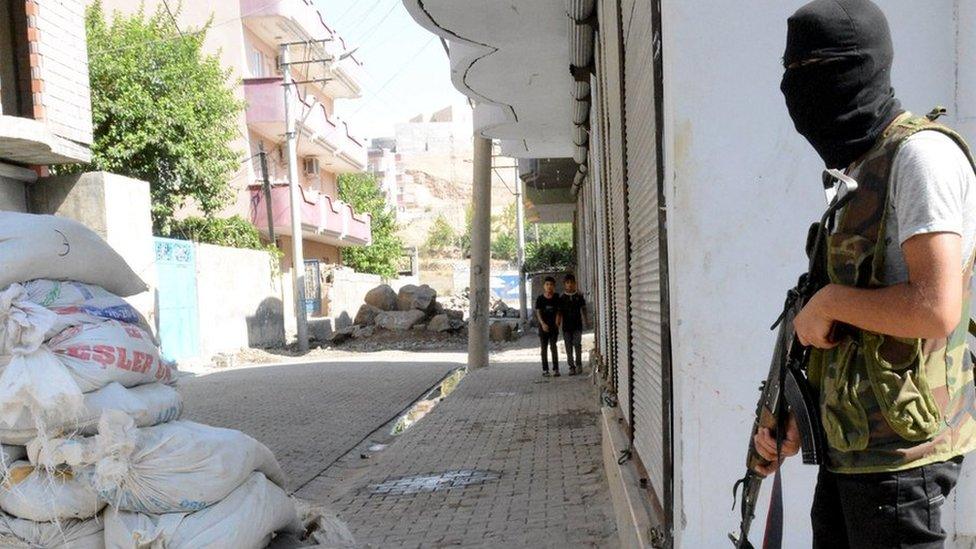
- Published9 September 2015
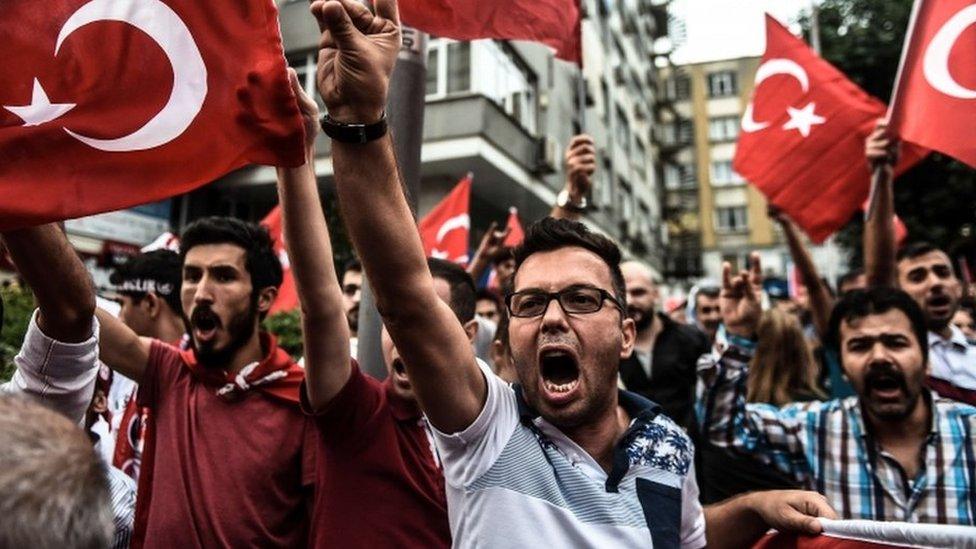
- Published9 September 2015
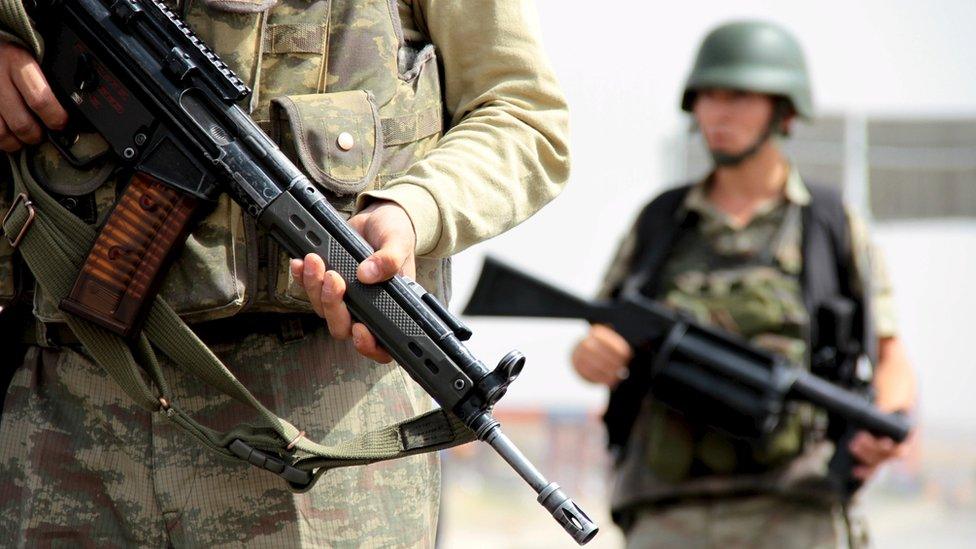
- Published2 September 2015
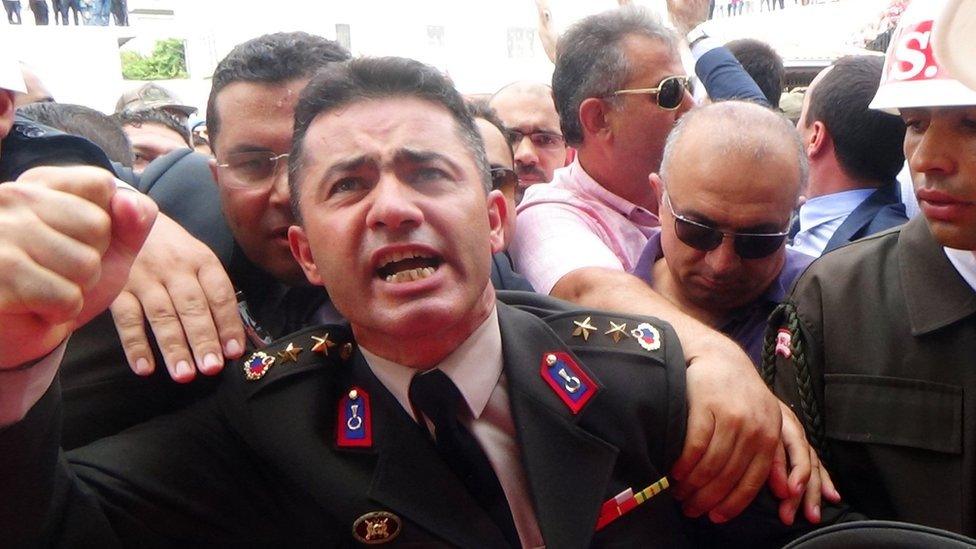
- Published23 August 2016
